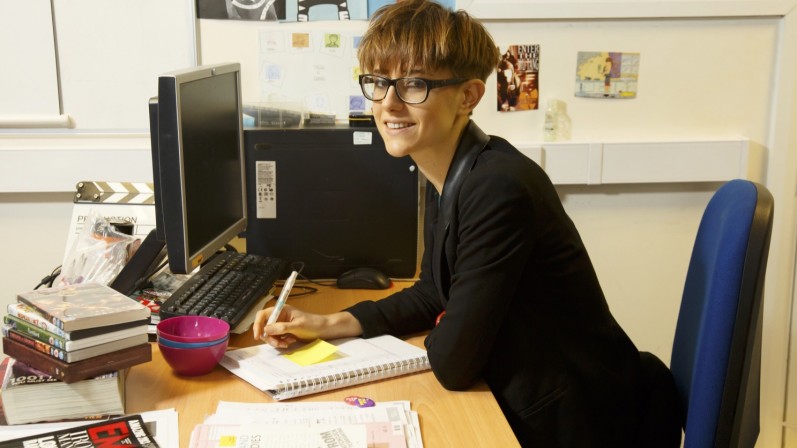Into Film Clubs
Find out everything you need to know about starting an Into Film Club.


Today marks World Teachers' Day (5 October), which is a perfect time to catch up with one of our most exciting and innovative teachers, Suzanne Cohen.
The former Teacher of the Year winner at the 2018 Into Film Awards spent the summer delivering online filmmaking projects at the Camden Summer University. Below, she delves into the making of her two exceptional films - one that you can watch above through Vimeo and one that you can watch on her website - and provides some essential tips for any teachers hoping to embark on a similar online filmmaking journey with their students.
Every year I run free film projects for 13-19-year olds at the Camden Summer University, based in a media centre or museum. This year, I was somewhat apprehensive at the idea of delivering it all online but my experience as a media lecturer supervising student films gave me some confidence that it was possible.
The main challenges were going to be engaging groups of young people who had never met to want to work online as a team, together with the technical difficulties of everyone having access to different equipment.
There were two projects, each lasting a week and working to specific group briefs. It was hard to ignore the topic of the lockdown, but obviously we wanted to put a positive spin on things.
The documentary brief was Life After Lockdown: What will change for the better? During the course of the week, experts from different fields were invited into our Zoom sessions to be interviewed by the young people, which were recorded. The group really enjoyed researching and writing the questions, as well as conducting the interviews and having a general Q&A.
The other element of the project asked young people to create a one-minute profile about their experience of the lockdown. These included scripted pieces to camera, and they were edited on mobiles or on PCs using free software.
You can see the final documentary on my website. Due to time limitations, I edited the zoom interviews and put the film together. The theme seemed to work very well and by the end of the project we all felt more positive about the future.
The other project was for young people with high functioning autism or social communication difficulties, run in collaboration with NHS speech and language therapists to help facilitate teamwork. We decided to make a music video, The Lockdown Song and enlisted comedian Menno Kuijper to help the group to write a parody of the 1960's song ‘Downtown' about their experiences of lockdown. They seemed to find it very easy - it was all done in 45 minutes!
We used breakout spaces of small groups to write and perform the song. The music video was then planned using shot lists, which was easier than drawing up a storyboard.
The young people went away and filmed their sections using mobiles or their computer webcams. We provided basic mobile phone tripods, which contributed to the steadiness of the footage. Again, the group really grasped the concept and as you can see, we had a lot of fun making it. Check out the final film at the top of the article!
Running an online film project will certainly be easier next time around now that I know more about the practicalities. I hope you all find these tips helpful:
For more filmmaking updates from me, head to my website and follow me on Twitter and Instagram through @docudarling.
Viewing 4 of 4 related items.

Get in touch with your article ideas for the News and Views section.